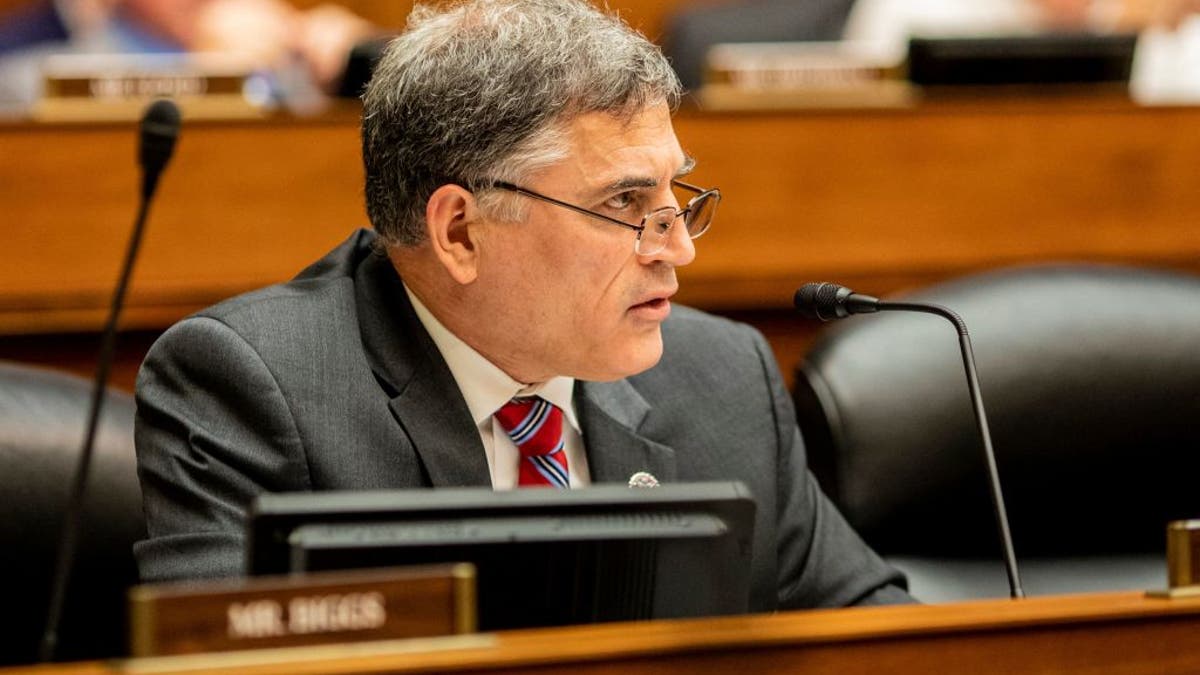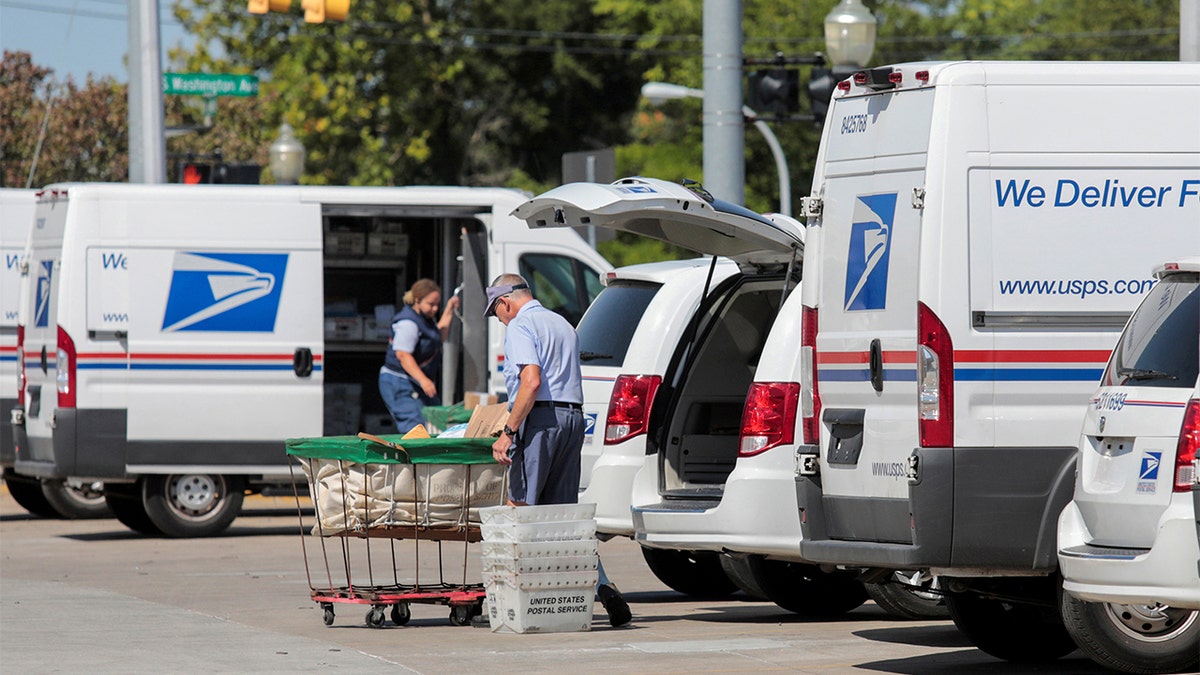Postal worker caught on camera throwing packages
A surveillance camera recently caught a U.S. Postal Service worker throwing packages. Credit: Fox 10 Phoenix
House Democrats on Tuesday rejected a Republican request for information about the U.S. Postal Service’s surveillance program that the GOP says has reportedly been used to spy on conservatives.
The U.S. Postal Inspection Service operates the Internet Covert Operations Program, or iCOP. The Postal Inspection Service is the security arm of the postal service, and iCOP works to assess threats to its infrastructure, employees and customers by monitoring open source information.
"In order to preserve operational effectiveness, the U.S. Postal Inspection Service does not discuss its protocols, investigative methods or tools," the Postal Inspection Service told Fox News Digital.
DEMOCRATS REFUSE TO EXAMINE ‘UNACCEPTABLE’ VETERAN HEALTH CARE DELAYS

Chairwoman Rep. Carolyn Maloney, D-N.Y., on Tuesday rejected a GOP request for more information on a U.S. Postal Service surveillance program. (AP Photo/Mariam Zuhaib)
In 2021, however, reports surfaced that iCOP was sending out bulletins to law enforcement officials on the movement of protesters, including one that claimed to have information on militia groups that might be threatening House Speaker Nancy Pelosi, D-Calif.
That prompted an inspector general report, released last March, that found iCOP’s actions "exceeded the Postal Inspection Service’s law enforcement authority."
Then, in September, the Cato Institute obtained records indicating iCOP had been used to track gun rights activists and conservative groups opposed to President Biden. That drove Rep. Andrew Clyde, R-Ga., to propose a resolution demanding all documents and information about iCOP’s alleged activities against conservatives.
GOP FIRES WARNING SHOT AT IRS: DESTRUCTION OF TAXPAYER FILINGS IS ‘RIPE FOR CONGRESSIONAL OVERSIGHT’

Rep. Andrew Clyde, R-Ga., speaks during a House Committee on Oversight and Reform hearing on gun violence on Capitol Hill in Washington, D.C., June 8, 2022. (Jason Andrew/Pool/AFP via Getty Images)
But in a meeting Tuesday of the House Oversight and Reform Committee, Democrats voted to unfavorably report Clyde’s resolution to the floor, effectively killing the request for more information. Republicans argued unsuccessfully for its passage by arguing iCOP is allowing the U.S. Postal Service to stray very far from its mission.
"My question is, what does that have to do with the United States Postal Service?" Clyde said in committee after reviewing iCOP’s alleged activities. "How much money has the Postal Service squandered on this program?"
DEMOCRATS REJECT GOP INQUIRY INTO DHS ‘DISINFORMATION’ BOARD
"I’m incredibly concerned … at the actions taken by the U.S. Postal Inspection Service for potentially, allegedly targeting conservative-leaning individuals in the pro-life group, various pro-life groups or Second Amendment groups," added Rep. Jody Hice, R-Ga. "The Postal Inspection Service has a mission, and quite frankly, they are far outside of their mission if these accusations are in fact true."
But Democrats rejected the GOP push for more information, even though they supported the initial inspector general examination of iCOP.

Republicans say alleged USPS spying on Americans warrants further investigation. (REUTERS/Rebecca Cook/File Photo)
"I believe strongly in protecting Americans’ First Amendment rights, and I also believe that we cannot accept inappropriate surveillance of peaceful protests and other First Amendment activity," said Committee Chair Carolyn Maloney, D-N.Y. "But the highly partisan resolution we are debating today is unnecessary and misdirected, and it would do nothing to protect the First Amendment."
Maloney said that, as a result of the IG report, the U.S. Postal Service agreed to address recommendations and conduct an internal review of iCOP.
CLICK HERE TO GET THE FOX NEWS APP
Clyde’s resolution was a "resolution of inquiry," which is required to be considered either in committee or on the House floor. The Democratic votes against it is a way of killing the proposal.
Several of these resolutions have been rejected by Democrats this year, and Republicans are expected to use these as a basis for aggressive oversight efforts against the Biden administration once Republicans take control of the House in January.






